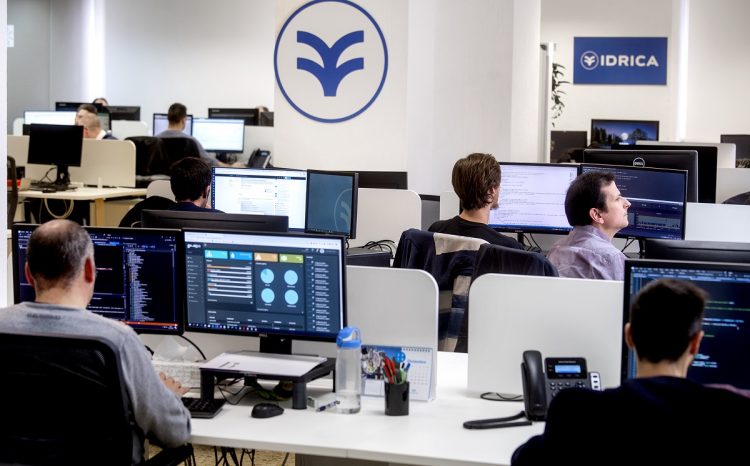Idrica, Orange, Huawei Tests Connection of Millions of Devices Via 5G to Remotely Read Water Consumption In Real Time

The pilot project is being conducted in conjunction with Orange, Huawei and other water industry partners in Valencia (Spain).
September 22, 2021. Idrica is participating in the Spanish National 5G Plan, implemented by the public-sector company Red.es, promoted by the Ministry of Economic Affairs and Digital Transformation and co-financed by the European Regional Development Fund (ERDF). In the framework of this plan, fifteen pilot projects are being deployed in Valencia to apply the new 5G mobile technology in different sectors of the economy.
The company is involved in a pilot project which focuses on remote reading of drinking water consumption in real time and the sending of information via the 5G network to a management center for analysis, pricing and processing. Idrica is working on this project in conjunction with Orange (the project leader) in the city of Valencia. Other participants include equipment and service providers such as Arborea Intellbird, CFZ Cobots, Etra Investigación y Desarrollo, Visyon (Estudio Bay), Elewit and Robotnik.
This pioneering project, which is scheduled to last around 18 months, involves the remote reading of 30 drinking water meters in different locations on the Universidad Politécnica de Valencia’s (UPV) campus. The 5G network will be used to send information to Idrica’s integrated management platform, GoAigua Smart Metering, a solution based on advanced analytics and algorithms. The data obtained will be used to draw conclusions about the capacity of 5G to connect millions of devices in the future, as well as its potential for the early detection of risks and emergencies, thanks to real-time meter reading.

Carlos Tejedor, Smart Metering and Instrumentation Specialist at Idrica, points out that “the use case we have proposed within a scenario of connecting millions of sensors is to compare current smart metering, and specifically the NB-IoT technology used to manage the complete water cycle, with the advantages offered by 5G. In addition, we are leaving a door open to future lines of research in other disruptive scenarios, such as critical IoT for decision-making algorithms where 5G can provide low latency, i.e. edge computing.”
Specifically, “we want to test energy management and network ubiquity. We need excellent sensor communication performance if we are to open the door to future lines of work, where criticality is a key factor. Serious damage to infrastructure can depend on opening or closing a valve; we need communication to be reliable, robust and take a millisecond,” says Tejedor.
“To achieve this,” he adds, “we will be testing scenarios in which we are able to simulate millions of sensors in one point or in the same area, using different tools, to see if we are capable of managing them. Energy management is also part and parcel of this roadmap, as it is one of the milestones we want to test,” said Tejedor. This pilot is focused on massive machine-to-machine communications (MIoT – Massive Internet of Things).
According to the Idrica expert, “we always say that there are no good or bad meters or technologies, only suitable or unsuitable ones. It depends on the client, on what they want to do with the data and even on the hardness of the water. Logically, cost also plays a part in the decision to adopt a particular technology. In this sense, the initial results obtained in this pilot project are very promising in terms of the way our devices manage energy, combined with 5G. The first two prototypes are an important milestone that will undoubtedly enable us to successfully continue with the proposed use case.”
5G technology is set to be one of the driving forces behind digital transformation in the coming years. According to the Idrica expert, “the transition from 3G to 4G is only noticeable in the fact that we can now send videos and photos to our friends more quickly. By contrast, 5G opens up a whole new range of opportunities, new lines of business, and use cases that were not an option before. We believe that the scale of progress will be disruptive and revolutionary.”
Corporate Information
Idrica is a leading international technology company for the water industry, specializing in digital solutions. It brings together more than a decade of experience in the industry in the areas of business management, O&M, engineering and consultancy in order to deliver digital solutions around the world. Thanks to its integrated water cycle platform, GoAigua, it boosts digital transformation in water utilities.
It operates in Europe, the United States, the Middle East, Africa and Latin America, providing solutions that serve over seven million users. Its headquarters are located in Valencia (Spain) and it has a team of more than 200 experts.
Idrica was born after the successful digital transformation of Global Omnium, a Spanish company with more than 130 years of history that currently manages the water supply of over 400 cities.


